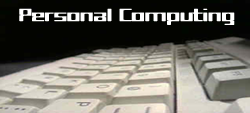 By Reid Goldsborough
By Reid Goldsborough
The death knell of the venerable personal computer has been particularly loud lately. Among the most boisterous auguries:
♦ Bill Gates’ successor as chief software architect at Microsoft, Ray Ozzie, predicted a “post-PC world” in a farewell blog post this past October (ozzie.net/docs/dawn-of-a-new-day). The reason is the burgeoning popularity of media tablets, smartphones, and “cloud”-based software.
♦ Market research firm IDC, in its “IDC Predictions 2011” report issued this past December (www.idc.com/research/viewdocsynopsis.jsp?containerId=225878), forecasted that over the next 18 months shipments of non-PC mobile devices such as smartphones and media tablets will outnumber PC shipments. IDC calls these “disruptive technologies” in the sense that they will cause a restructuring in companies making information technology (IT) as well as those using it.
♦ In January at the Consumer Electronics Show (CES), the industry’s largest trade show introducing new products, media tablets and smartphones dominated. As Preston Gralla (blogs.computerworld.com/gralla), author of more than 20 books about PC technology, said in a blog post, “The most exciting innovations today are in smartphones and tablets, not PCs.”
Such foreboding has been heard before.
In 1996 Larry Ellison, CEO of enterprise software behemoth Oracle, bet on scaled-back and dumbed-down “network computers” using software over corporate networks overtaking PCs in the workplace. He called the PC a “ridiculous device.”
What happened was that sales of PCs to organizations as well as consumers continued to climb, the network computer never took off, and Oracle mothballed it in 2000.
The PC retains the charms it had when IBM introduced the first IBM PC on August 12, 1981. A PC helps you communicate more efficiently than a typewriter or telephone. It lets you plan and budget more effectively than a calculator or table. It makes it possible to keep track of people and things more easily than a roster or list. It can tap into more research than the largest collection of periodicals or books. And it makes training more compelling than words and pictures on paper.
Until truly functional speech recognition is developed, for inputting information nothing is more efficient and ergonomically healthy than sitting on a good chair in front of a desktop PC and typing.
Still, it’s clear that, as always, change is underway.
Smartphones are as exciting today as the PC was in the 1980s when it was undergoing the same rate of innovation. Apple leads the way here with its iPhone. This handheld computerized device not only lets you make cell calls but also exchange email, browse the Web, watch and shoot video, take photos, play games, and access more than 300,000 free and pay “apps” for a staggering degree of versatility.
Media tablets, also called tablet computers or simply tablets, occupy the space between smartphones and notebook computers. They present themselves primarily as a large touch screen, and they’re primarily for content consuming -- books, periodicals, movies, music, games, and Web content -- rather than content creating. Apple with its iPad has the market leader here as well.
Cloud computing in some ways is the latter-day version of network computers. Instead of using big, complex programs on your desktop computer or your organization’s network server, and instead of needing lots of processing power and storage space at your location, you use resources offered over the Internet (the “cloud”). This can save time and money.
Google stands the most to gain here, with Google Apps (www.google.com/apps) being among its many cloud offerings. As long as you have Internet access, Google Apps lets you use programs through your Web browser for word processing, spreadsheets, presentations, and other tasks. With its popular Android operating system for use with smartphones and tablets, Google is also positioned well as these technologies increase in popularity.
In the face of this change, among big companies Microsoft is in the most vulnerable position. It built its fortune primarily on the Windows operating system and the Office suite of software programs. If the predictions come to pass, Windows at some point will cease being the world’s dominant operating system and Word, Excel, PowerPoint, and other Office programs will cease being how most people get their work done.
As a possible foretaste of things to come, last year for the first time ever Apple’s market capitalization exceeded that of mighty Microsoft, the brawn behind the PC, putting Apple at the top of the IT food chain.
All good things must come to an end. It’s inevitable that the PC will eventually die. Here’s guessing though that this will likely take at least another decade.
♦

